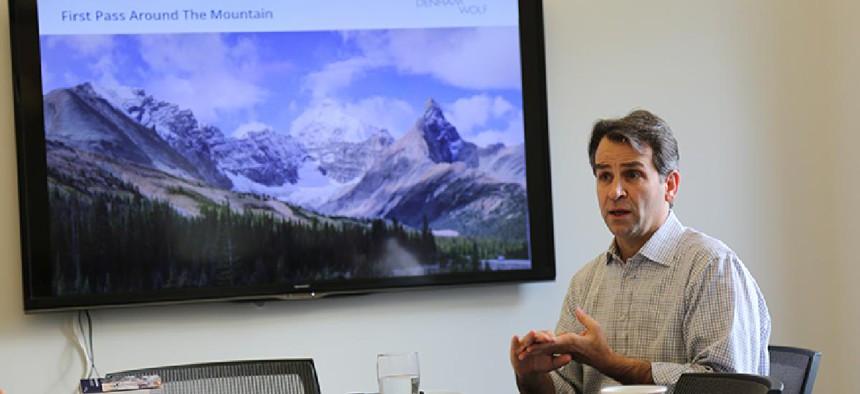Critical nonprofit assets will disappear without your action

Paul G. Wolf Denham Wolf
As the effects of the pandemic expand and the road to recovery lengthens, some nonprofits are encountering the limits of their resilience. Other organizations have remained in a relative position of strength because they were prepared enough or have simply been fortunate. These organizations must embrace an inclusive approach to survival rather than prioritizing their survival alone.
More specifically, strong organizations must help preserve the mission impacts of their peers and critical nonprofit assets – such as high value programs, hard-won grants, key staff, and real estate. Our communities need nonprofits to lead the charge, as is often the case in periods of crisis. Even with government and other support, nonprofit leadership is essential to deploying outside resources effectively.
Having worked with nonprofits since 1998, Denham Wolf has experienced the creativity, tenacity, and cooperation of the nonprofit sector first-hand. The shared space movement, which has provided facilities and critical support to many nonprofits, grew out of a desperate need to control costs as nonprofits were being priced out of their neighborhoods. In the last few decades, numerous nonprofits have launched with a focus on sector-specific advocacy, skills-building, financing support, and group purchasing power, which has enhanced the sector’s sustainability and impact. The Ford Foundation, which recently committed to issuing bonds in order to increase its grantmaking, has set an excellent example of community-focused innovation during the current pandemic. Much more innovation, underpinned by an uncompromising commitment to mission, is required today.
Many recent analyses point to steep decreases in earned income, dwindling donor contributions, and withering public sector funding. Furloughs, layoffs, and salary reductions have become increasingly prevalent in the nonprofit community, further limiting capacity for many organizations. Candid, the result of a merger between the Foundation Center and Guidestar, recently estimated that 22,000 United States-based nonprofits will close because of the COVID-19 crisis. These closures will ultimately impact even the strongest organizations. Nonprofit staff members, many of which grapple with financial safety nets as limited as their employers’, will be forced to leave the region, the sector, or both. If the facilities, staff, reputation, or programs than indirectly benefit affiliate organizations are unavailable, there is potential for detrimental domino effects.
However, there is opportunity in crisis. Organizations with a healthy balance sheet can extend their good credit to support other nonprofits. Organizations with highly effective and efficient leadership have the ability to successfully navigate a merger or other partnership. Organizations with stable and affordable real estate may be in a position to share facilities, albeit with the requirement that sufficient renovations and administrative controls are implemented to limit the spread of COVID-19. In addition, there are increasing opportunities to lease or purchase real estate at a discount.
Organizations exploring any of the actions above should consider alliances. A consortium of nonprofits will have significant leverage in negotiating for space, pursuing funds, and advocating for policy reform. These efforts typically garner the greatest impact when the group is led by an exceptionally stable organization.
Real estate is only one component of a nonprofit’s operations, but its notable financial impact often puts Denham Wolf at the center of organizational decision-making. In all Denham Wolf projects, the client’s mission leads and their real estate follows. In this current climate, where every individual organization’s mission impact is tied to the sector’s survival, it is vital that the public interest leads.
